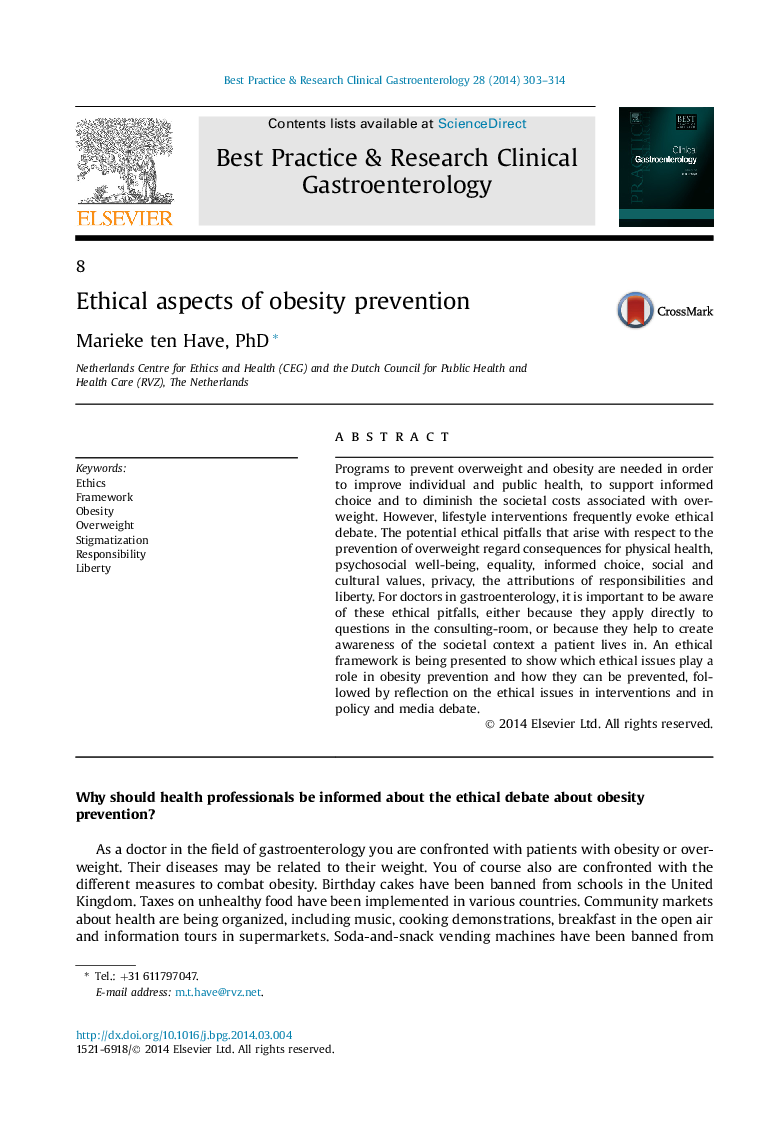| Article ID | Journal | Published Year | Pages | File Type |
|---|---|---|---|---|
| 3254144 | Best Practice & Research Clinical Gastroenterology | 2014 | 12 Pages |
Programs to prevent overweight and obesity are needed in order to improve individual and public health, to support informed choice and to diminish the societal costs associated with overweight. However, lifestyle interventions frequently evoke ethical debate. The potential ethical pitfalls that arise with respect to the prevention of overweight regard consequences for physical health, psychosocial well-being, equality, informed choice, social and cultural values, privacy, the attributions of responsibilities and liberty. For doctors in gastroenterology, it is important to be aware of these ethical pitfalls, either because they apply directly to questions in the consulting-room, or because they help to create awareness of the societal context a patient lives in. An ethical framework is being presented to show which ethical issues play a role in obesity prevention and how they can be prevented, followed by reflection on the ethical issues in interventions and in policy and media debate.
